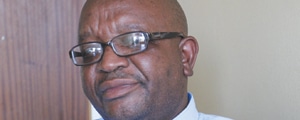
An old English expression says that people should not see the creation of laws or sausages. There is just too much horse trading and/or “compromises” in both industries. And so it is with the Reserve Bank of Zimbabwe (RBZ) Debt Assumption Bill.
This instrument in evolution, should it see the light of the day as law, is a massively “socially controversial” brazen example of “structural looting” (albeit) within policy. The old Rhodesia’s Land Tenure Act is another.
The Bill sailed through Parliament on May 12, after a heated debate. A vote followed which Zanu PF, to its eternal shame, won by a hand count of 115 to 37. That hour may be the MDC-T’s finest yet. It has been said: “Right, temporarily defeated, is stronger than evil triumphant.”

And yet the major objective of the Bill is noble. It is to have government assume the $1,35 billion debt the central bank owes to several creditors. The bulk of the debt was incurred in the ill-conceived farm mechanisation programme at the height of the equally ill-conceived quasi-fiscal programmes carried out by the RBZ. The unfortunate bit is the government is broke and survives on donor support, with 70% of its tax payers wallowing well below the poverty datum line.
Although there are other negatives, the bone of contention that the MDC-T raised with this instantly notorious Bill is that those who benefited from the farm mechanisation programme — the well-connected fat cats deliberately refused to pay for the machinery because of values deficiency, or could not do so due to fraud (selling off the machinery and abusing the proceeds), laziness and/or incompetence, voted in favour of the Bill. The instrument proposes to keep their identities under seal and may let them off the hook of paying back; this at the expense of even the poorest that pay VAT and other taxes.
The Bill now awaits transmission to the Senate and if passed, will be forwarded to President Robert Mugabe for his assent before it becomes law. The Senate should seek to amend the Bill, but should it pass as is, the President should veto it. The full register of delinquent debtors to the RBZ must be made public and the debtors’ book auctioned in portions to debt collectors.
The President’s lofty office, as head of State, is such that he should stand firm against being abused or blackmailed. According to Chapter 3 of the 21st edition of Remington: The Science and Practice of Pharmacy, the quest to construct systematically an ethical framework for Western civilisation was begun over 2 000 years ago by Socrates. He approached ethics as a science, as being “governed by principles of universal validity, so that what was good for one was good for all, and what was my neighbour’s duty was my duty also”. Students of ethics note, however, that “after 2 000 years of effort, humankind universally adheres to not even one ethical principle”. Acceptance of the Socratic approach, it has been noted, has proved burdensome.
- Chamisa under fire over US$120K donation
- Mavhunga puts DeMbare into Chibuku quarterfinals
- Pension funds bet on Cabora Bassa oilfields
- Councils defy govt fire tender directive
Keep Reading

But it is a burden heads of State, in particular, and all professionals must carry though no set of ethical principles, no matter how carefully thought out or constructed, can provide an individual with guidance for every challenging situation. The press reported that the Speaker of Parliament Jacob Mudenda could have made a decision without calling for a vote. As an advocate, he may have concluded he needed to wash his hands, given the soiled challenge before him. Mugabe — a law graduate himself — would not have missed the significance of the Speaker’s action, be it inadvertent or otherwise. That the two of them may have to speak in code is a sign of the troubled times.
The President, therefore, is duty-bound to apply a formalised and scientific ethical decision-making framework that involves the likes of some or all of the following: l Ensure he has adequate knowledge of all the pertinent facts involved. A comprehensive audit and due diligence is required first. Chris Chenga’s excellent discussion of the Bill’s shortcomings may be helpful (The Sunday Mail, May 17 2015) lApply moral rules: Does it pass the test of “universal validity, so that what was good for one was good for all and what was my neighbour’s duty was my duty also”?
lApply ethical principles of fidelity (loyalty to all citizens), distributive justice (equal distribution of the benefits and burdens of society among all members of the society), beneficence (acting in a manner to do good) and nonmaleficence (avoiding harm)?
lFinally he must interrogate ethical theories such as teleological (consequentialist) and deontological (nonconsequentialist) ones. In brief will the consequences of the Bill becoming law be positive, in the short, medium and long-term or will “truth and integrity” have been upheld bar the consequences?
The result, should the Senate or the President apply a logical and ethical decision-making framework, is, therefore, obvious. The RBZ will be freed of the debilitating debt. RBZ’s creditors will have their loans, or a portion thereof, serviced. The debtors’ book will be sold and the beneficiaries of the farm mechanisation programme who deliberately failed to pay back will be pursued.
Zimbabwe Defence Forces commander General Constantine Guvheya Chiwenga, armed to the teeth with a newly minted doctorate in Ethics, will be happy to help the Zimbabwe Republic Police enforce the law, should the unlikely need arise.
lTapiwa Nyandoro can be contacted on [email protected] or [email protected]











